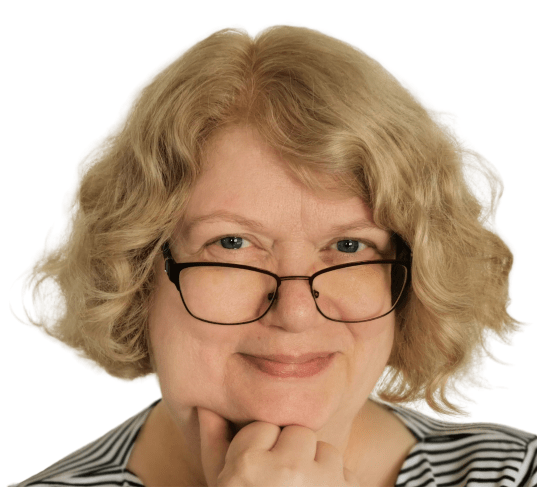Sue Littleford

Sue Littleford
Advanced Professional Member
Why did you choose an editorial career, and how did you get into it?
Copyediting is my second career. I'd always been the local wordsmith everywhere I'd worked, and the time finally came to devote myself to editing. I resigned, took a few months off and retrained, then hung out my shingle – with no previous publishing experience or any contacts. Foolhardy, to say the least, but I survived.
What training have you done to get your editorial career up and running?
I took an introductory Chapterhouse course, long ago, which taught me I'm a copyeditor, not a proofreader, but as soon as I lived within reach of SfEP classroom courses, I did several – on-screen editing 1 and 2, efficient copyediting, going freelance and staying there (to see what I should have done!), introduction to web editorial skills, and professional copyediting, plus indexing for editors and proofreaders at the Society of Indexers. And with the PTC: editing digital products and advanced copyediting. I've also attended two SfEP conferences, with a third coming up this year where I'll be one of the session leaders.
I'm currently working through the references course online as I want to become conversant with systems I've not yet had to use.
What work are you most proud of?
I worked on a multi-author book that was particularly challenging. The volume editor said that I hardly seemed to have done anything, but the book was so much more readable. Invisible editing! I recently unearthed a letter of recommendation from the lead author of a particularly abstruse book which said that I was clearly 'tuned-in to the research topic' to be able to query correctly the points that I had. I didn't have the heart to tell her that it was all new to me.
What do you do if you're struggling on a job?
I stop working on it, if time allows. I'm a great believer in putting problems on the back-burner for a while to let them simmer. Usually, the next time I try to work on whatever it is the solution is obvious. If it's some technical point or usage issue, then there are the CIEP forums and the Editors' Association of Earth Facebook groups to pose questions, or to vent, or to gather opinions and options.
What does being a member of the CIEP mean to you?
So much! With my precipitate arrival in the editing world, I was finding it hard to get established. I answered an Announce ad. That client is still with me eight years later. Gaining Advanced Professional membership a few years ago gave me validation in my new profession, and gives potential clients confidence in my abilities. I've just picked up a new publisher client who saw my entry in the CIEP directory and who didn't feel the need to ask for a test or a trial piece.
Which editorial tasks do you enjoy the most and why?
Nerdily, the initial clean-up and the references. The initial clean-up is so satisfying, as most jobs come to me in their raw form and in a short time you can have the book in a much better condition without reading a word! And there is something rather gratifying about resolving a reference list that's a bit of a pig's ear into a coherent, usable resource for the reader. Once I start reading, I do enjoy trying to work out what an author has intended when the text has got away from them a little, proposing a rewrite and having it accepted as the correct interpretation.
Do you have any editorial pet hates?
APA <shudders>
What has most surprised you about your editorial career?
That I've managed to establish myself with no background in publishing.
What's the best career advice you've received?
Not specific to a freelance editing career, but I picked up on a management course aeons ago that far more businesses fail from lack of cash flow than lack of profit – and more quickly, too. I'm quick to invoice, and quick to chase!
What advice do you have for people starting out on an editorial career?
- Have a decent cushion of cash in the bank, to keep you going while you get established – at the very least, six months' salary.
- Train. You may well have done lots of 'unofficial' editing for your employer. Being a freelance editor or proofreader is different.
- It's not your name on the title page. Good enough is good enough – don't change what doesn't need changing just because it doesn't fit in with your personal preferences.
- Keep up with changing usage, and stay clear of zombie rules!
Do you ever stop editing?
I try. I fail.
Finally, tell us one thing about you not related to editing
I want to spend more time on my family history!
The CIEP does not give any special endorsement to the members who appear in Meet our members. If you are looking for an editorial professional, we recommend you search the Directory of Editorial Services.
